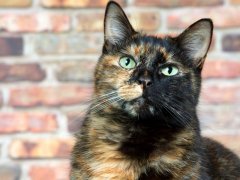
Northwest Naturals Pet Food / nw-naturals.net
Portland-based Northwest Naturals pet food company in December issued a voluntary recall of one batch of its 2-pound Feline Turkey Recipe raw frozen pet food. The recall came after a house cat in Oregon died after eating the food, which later tested positive for bird flu (H5N1).
According to the release, the recalled food is packaged in 2-pound plastic bags with “Best if used by” dates of 05/21/26 B10 and 06/23/2026 B1. The recalled product was sold through distributors in Arizona, California, Colorado, Florida, Georgia, Illinois, Maryland, Michigan, Minnesota, Pennsylvania, Rhode Island, Washington, and British Columbia, Canada.
The Oregon Department of Agriculture issued a release stating that testing was conducted by the U.S. Department of Agriculture’s National Veterinary Services Laboratories and the Oregon Veterinary Diagnostic Laboratory at Oregon State University. The tests confirmed that the house cat in Washington County, Oregon, contracted H5N1 and died after consuming the raw frozen pet food.
Northwest Naturals pet food company, which is owned by Morasch Meats, is fully cooperating with the Oregon Department of Agriculture on the voluntary recall. The company urges pet owners who purchased the recalled product to immediately discard the food and contact the place of purchase for a full refund. For more information about the recall, visit the Northwest Naturals website.
According to the American Veterinary Medical Association, dozens of domestic and wild cats in the United States have contracted the H5N1 bird flu virus since March 2024, and cats seem to be susceptible to severe illness and death. To prevent bird flu transmission to cats, AVMA recommends pet owners to avoid feeding raw meat-based food and treats, as well as raw milk and other raw dairy products. Keep cats indoors, away from wildlife, livestock, poultry, and their environments, and contact your veterinarian right away if you think your cat might have been exposed to the H5N1 bird flu virus.



